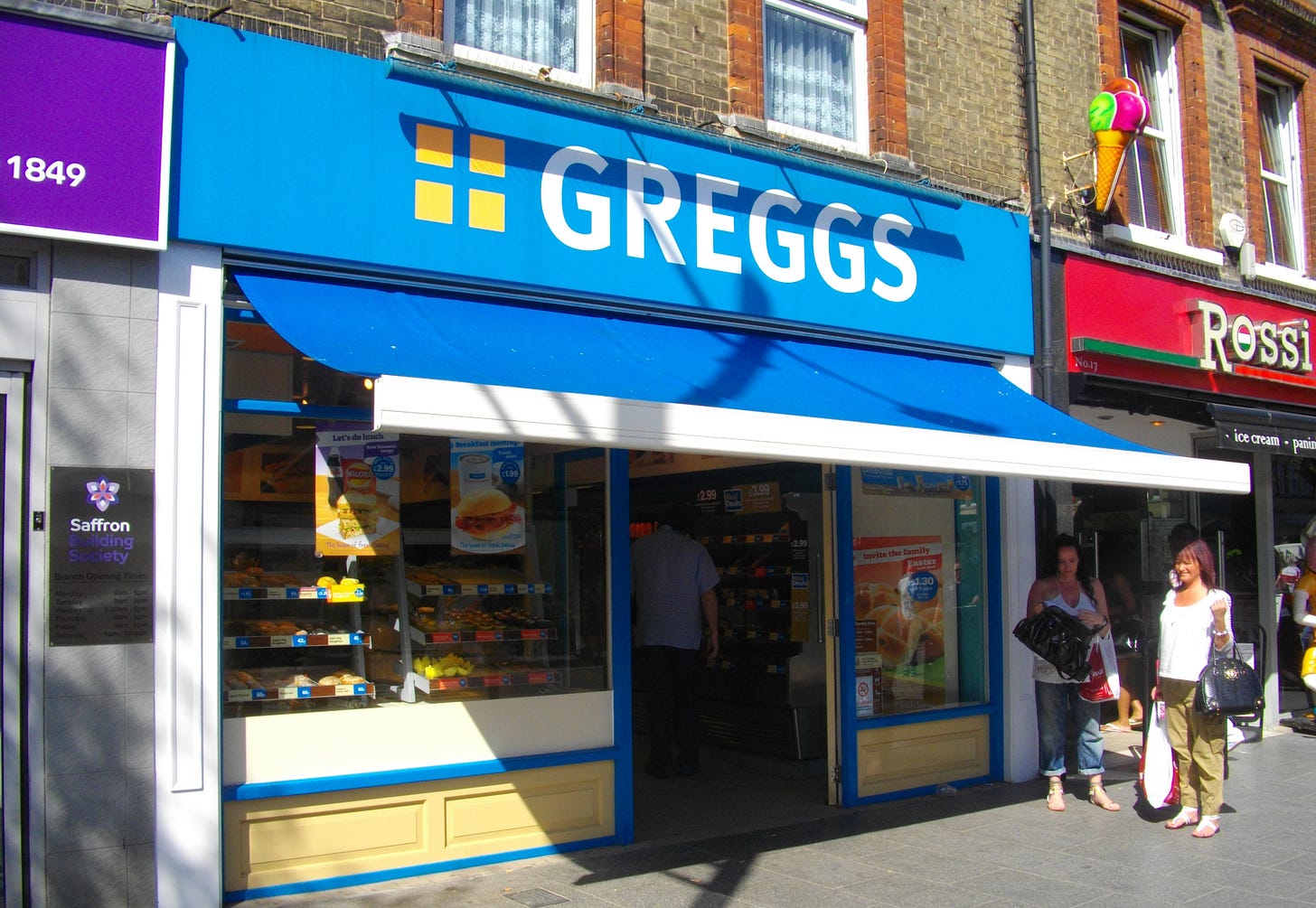Reeves eyes tax reform. Does she have the time?
The tax system is a mess — but the chancellor needs cash *now*
At what point is food considered hot? This is not a philosophical question — lawyers have had to get involved. As of 2011, under tax legislation, the sale of most foods purchased to eat or cook at home was zero-rated for VAT, whereas food consumed in restaurants (as well as hot takeaways) was charged at the standard 20% rate.
But this does not answer the question. Specifically, what about food that might be hot as part of the cooking process, but cools down by the point of sale? Should that be zero-rated or subject to the standard rate? An ambitious government once sought to address this problem head-on. It proposed to apply VAT at the standard rate to all food that was “above ambient air temperature” at the time it was provided to the customer1.
This seemed… sensible? Treasury civil servants — who had kept the policy in a dusty drawer for unsuspecting ministers — certainly thought so. I mean, who could be opposed to simplifying the tax system and generating a little extra money for a cash-strapped government? Pretty much everyone, it turned out.
The proposal became known as the ‘Pasty Tax’, a cornerstone of the 2012 ‘Omnishambles Budget’, and served to bolster Ed Miliband’s favourite attack line: that the Tories were ‘out of touch’. John Mann, no great fan of that Labour leadership, extracted the best reaction shot when he asked George Osborne when the chancellor last bought a pasty at Greggs.
The point here is that tax reform, no matter how seemingly innocuous, has the potential to go catastrophically wrong. Which is why governments tend to avoid it. But the result is that Britain’s tax system is, well, highly irrational, and subject to what the Institute for Government’s Jill Rutter deliciously describes as “serial ad hocery”. Think of the myriad taxes, tax reliefs and marginal tax rate cliff edges2.
Take housing. Stamp duty was first introduced in England in 1694 as a temporary measure to finance war with France. The tax raises around £14bn a year but also imposes friction on the property market and reduces labour mobility. Yet it looks positively hyper-efficient compared with the council tax system, which is predicated on the price a home would have sold for on 1 April 1991. For reference, Chesney Hawkes's "The One and Only" was number one in the UK charts.
So, stamp duty is hostile to economic efficiency while council tax is leaving revenue on the table. Rachel Reeves is no fool and could reform both of these, but she faces two major stumbling blocks. The first is obvious: political blowback. Any reform to stamp duty and council tax will create losers, and those losers are sure to be loud about it. But there is another, potentially bigger issue: tax reform takes time, something the chancellor is sorely lacking.
Reports suggest that the Office for Budget Responsibility (OBR) is set to downgrade not just its GDP forecasts but also its predictions for productivity, which have long been on the optimistic side. This is, I’m afraid, a big deal. Even a 0.1 percentage point cut in the productivity growth forecasts over the next five years would eradicate Reeves’ precious £9.9bn of fiscal headroom.
To be blunt, the chancellor does not just need money — she needs it to be ‘scored’ by the OBR. There are a number of potential tax reforms she could undertake, whether around housing or inheritance tax, for example by extending the so-called ‘seven-year’ gifting rule to 10 or even 14 years. But these would not necessarily bring in large sums of money in the next five years — the time horizon the OBR uses to mark the government’s card. Indeed, some reforms may even result in falling revenue over the short term.
The tax system is long overdue for a major overhaul. It fails on two fronts: it neither raises enough to meet public spending pressures, nor is it designed to maximise long-term economic growth. Instead, it distorts markets, is riddled with expensive and ineffective reliefs and has been repeatedly picked apart by opportunistic chancellors more interested in headlines and dividing lines than fiscal coherence.
In an ideal world, tax reform would take place amid frothy economic growth, when governments can afford to smooth over any losses and buy off dissent. Clearly, we are not living in those times. Reeves needs money — and she needs it now.
Gavin Kelly, chief executive of the Nuffield Foundation and former executive chair of the Resolution Foundation, once said of tax reform:
[I]t would meet a wall of resistance. Only a government with a thumping majority, a zeal for reform and a taste for battle will contemplate it.
This government certainly enjoys the first of those requirements. But the others?
With the exception of baked bread ¯\_(ツ)_/¯
See the effective 60% tax rate on incomes between £100,000 and £125,140 as the personal allowance is withdrawn from individuals with incomes over £100,000 a year






I love and hate, in almost equal measure, some of the quirkiness of the "mess"; it seems very "British" but I'm sure we are not unique here. I have a far too vague recollection of a dispute between the tax authority and a certain Scottish-sounding manufacturer of sweet treats, in particular, whether their orange-flavoured flying saucer-shaped product was indeed a "cake" or a "biscuit". I imagine the VAT treatment was different, one perhaps being classed as a staple food item and the other as a "luxury" confectionery item.
To my mind, a flat rate tax, for the sake of arguement lets say 20%, with no allowances whatsoever or,if push comes to shove, just a tax free allowance of £15K a year, would by far be the simpliest and most logical way forward. Everybody, including the billionaires, will pay tax on all of their incomes and the more you earn the more tax you pay- but at a rate that will not discourage people from earning more. My son paid £336K income tax last year and, no doubt, 10's of thousands more "tax" by way of NI, VAT, council tax and the like, and is, like many of his friends and work colleagues, seriously considering leaving the UK for less taxed shores.